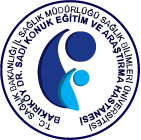ABSTRACT
Botulism is a rare neuroparalytic disease caused by a neurotoxin produced by the spore-producing bacterium Clostridium botulinum, an obligate anaerobe bacteria is found commonly in the environment. This toxin binds to the receptors of the axon membrane of the motor neurons, preventing the release of acetylcholine in the neuromuscular junction, causing flaccid paralysis. First findings are diplopia and nistagmus; resulting from the weakness of small extraokuler muscles. Bulber paralysis, respiratuary paralysis, cardiac arrest and at the end death can be seen. Treatment includes meticulous intensive care that includes mechanical ventilation, if necessary, and administration of antitoxin. Here, we reported a 21 years old a male patient with the diagnosis of botulinum intoxication, successfully treated in our intensive care unit.



